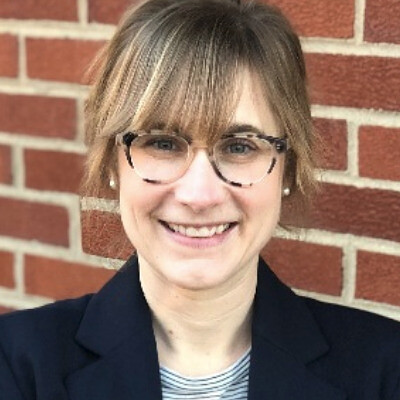Introduction to Interprofessional Education (IPE) at the University of Michigan (U-M) began as a 1.5-hour asynchronous module, serving as an assignment for first-year students in various health profession programs, introducing them to two IPEC competencies. In 2023, it was revised as a 3-hour asynchronous offering to describe all IPEC competencies, intercultural humility (a U-M-specific IPE competency), define IPE and IP collaboration (IPC) in relation to the quintuple aims and social determinants, identify attributes of effective interprofessional teams, and reflect on conflict/leadership styles. Learning objectives are addressed through videos, readings, discussions, and a case study. Students are assessed through reflections, word clouds, and the Interprofessional Socialization and Valuing Scale (ISVS) 9a/b.
Introduction to IPE has impacted thousands of U-M learners. In 2024/25, over 1500 learners completed the offering, yielding significant improvements in ISVS scores (preliminary data: pre-score, 5.42; post-score, 6.09; p = 0.002). Positive feedback underscores its efficacy, with 93% of Fall 2024 learners indicating they would recommend it to other health science students and 90% indicating it helped them identify/articulate the relevance of IPE to their future practice. Encouraged by this success, plans were made to broaden its reach by adapting the curriculum to engage a broader audience, both within and outside U-M, integrating varied teaching methodologies, and expanding partnerships with practice/community-based settings.
This enhancement and expansion were made possible through strategic partnerships with the Center for Academic Innovation (CAI) and the Center for IPE (CIPE). The partnerships facilitated a comprehensive curriculum redesign to:
(1) elevate accessibility and user experience,
(2) create an external-facing version for non-UM students
(3) create a version for educators/practitioners engaging in IPE/IPC.
Two faculty members (one focused on educators/practitioners, one focused on students) and one staff member leading the project from CIPE partnered with CAI, which included a design manager, learning experience designers, media designers, and a course operations specialist. Additional expertise from CAI was engaged, including copywriters, researchers, and marketers.
The collaborative process involved a multi-faceted approach inclusive of design, implementation, and evaluation stages. Leveraging partnership expertise, creative digital tools and pedagogical techniques were utilized to meet intended learning outcomes. This initiative provided insights into scalable practices in IPE. The strategic partnerships have proven invaluable in advancing IPE, enabling broader goals through enriched learning experiences, further serving as a blueprint for future educational innovations and contributing to improved healthcare delivery, collaboration, and education.
In support of improving patient care, this activity is planned and implemented by The National Center for Interprofessional Practice and Education Office of Interprofessional Continuing Professional Development (National Center OICPD). The National Center OICPD is accredited by the Accreditation Council for Continuing Medical Education (ACCME), the Accreditation Council for Pharmacy Education (ACPE), and the American Nurses Credentialing Center (ANCC) to provide continuing education for the healthcare team.
As a Jointly Accredited Provider, the National Center is approved to offer social work continuing education by the Association of Social Work Boards (ASWB) Approved Continuing Education (ACE) program. Organizations, not individual courses, are approved under this program. State and provincial regulatory boards have the final authority to determine whether an individual course may be accepted for continuing education credit. The National Center maintains responsibility for this course. Social workers completing this course receive continuing education credits.
The National Center OICPD (JA#: 4008105) is approved by the Board of Certification, Inc. to provide continuing education to Athletic Trainers (ATs).
This activity was planned by and for the healthcare team, and learners will receive Interprofessional Continuing Education (IPCE) credit for learning and change.


Physicians: The National Center for Interprofessional Practice and Education designates this live activity for AMA PRA Category 1 Credits™. Physicians should only claim credit commensurate with their participation.
Physician Assistants: The American Academy of Physician Assistants (AAPA) accepts credit from organizations accredited by the ACCME.
Nurses: Participants will be awarded contact hours of credit for attendance at this workshop.
Nurse Practitioners: The American Academy of Nurse Practitioners Certification Program (AANPCP) accepts credit from organizations accredited by the ACCME and ANCC.
Pharmacists and Pharmacy Technicians: This activity is approved for contact hours.
Athletic Trainers: This program is eligible for Category A hours/CEUs. ATs should claim only those hours actually spent in the educational program.
Social Workers: As a Jointly Accredited Organization, the National Center is approved to offer social work continuing education by the Association of Social Work Boards (ASWB) Approved Continuing Education (ACE) program. Organizations, not individual courses, are approved under this program. State and provincial regulatory boards have the final authority to determine whether an individual course may be accepted for continuing education credit. The National Center maintains responsibility for this course. Social workers completing this course receive continuing education credits.
IPCE: This activity was planned by and for the healthcare team, and learners will receive Interprofessional Continuing Education (IPCE) credits for learning and change.
Learners can claim CE credit by completing the Daily Evaluation.




